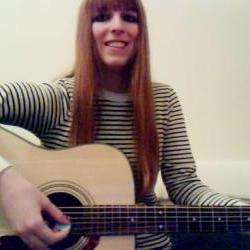“The rhythm of words takes away from my sense of rhythm,” Meredith Monk explained after a riveting performance of her piece Things Heaven and Hell by the Young People’s Chorus of New York City. The third part of Ms. Monk’s 1992 work Three Heavens and Hells, this piece was one of only a handful to incorporate real words in the entirety of the four-and-a-half hour Meredith Monk & Friends celebration at Carnegie’s Zankel Hall last weekend. Ms. Monk continued, in her on-stage interview with host John Schaefer, by stating that the exception made for Things Heaven and Hell materialized when she read a poem about three types of heavens and hells (which are really all the same) by the then-preteen Tennessee Reed, which “seemed very Buddhist for an eleven-year-old”. The young girl’s poem was unraveled and spun into rhythmically demanding and difficult repetitions that blurred the line between words and non- words by the immensely talented young women of the Chorus, who were led in wanderings both musical and physical by their artistic director Francisco J. Núñez. As they rippled across the stage like dominoes, a visual personification of their rippling voices, the repeated words and sounds (such as “thing-zuh”) incited a sonic and conceptual reevaluation of these words and sounds in the ears of the listeners.
Over the span of fifty years, Meredith Monk has chipped away at the concepts of music, rhythm, language, architecture, and communication through her music. In the same interview with Mr. Schaefer, she explained that “each piece I make is a world” and that she is fascinated by the voice’s possibility as an instrument—and, more recently, instruments’ possibilities as voices. Both voices and instruments were explored by the Bang on a Can All-Stars during their performance of two Bang on a Can co-founders’ arrangements of three different Monk pieces. Throughout Julia Wolfe’s arrangement of Memory Song (from 1984’s The Games) as well as David Lang’s arrangements of totentanz (from Impermanence of 2004-2006) and the 1986 Double Fiesta, Katie Geissinger’s chirping and cawing mingled alongside Ms. Monk and Theo Bleckmann’s nonsensical repetition of nouns (“chairs”, “trees”, “football”); the flat yodeling and rapid gibberish of the three vocalists subsequently coalesced with Vicky Chow’s serene, motoric piano patterns and Robert Black’s bumbling bass pizzicato, all of which were punctuated by the occasional bark or howl. In typical Monkian fashion, the tone and gestures of the unintelligible burbling managed to convey much more meaning than the non-connective nouns, resulting in a wondrous wordless communication across the vocalists and instrumentalists.
There were no live voices employed during Missy Mazzoli’s arrangement of Passage and What does it mean? (2006/1970, both originally written for overlapping voices) performed by Ms. Mazzoli and her all- woman band Victoire. During this interpretation, one of the strongest of the evening, the musicians swirled and looped chaotic patterns on piano, electric keyboard and organ, clarinet, bass, and violin, with prerecorded groaning vocal tracks sporadically contributing a ghostly yet human element. On the opposite side of the instrumental spectrum, half of the M6, another all-woman group, offered their interpretation of Tablet. This early work, composed from 1974 to 1976, relies on the build-up of three human voices over recorders and piano. An unabashed exploration of the female voice, Tablet wends its way through shrill coos and whines and gossiping shrieks and chatters, none of which is comprehensible. Here again, however, Ms. Monk has managed to convey tone and meaning and even bits of unstructured narrative through the layers of unconventional vocal sounds, allowing the stereotypically negative qualities of the female voice to come together in a web of high-pitched beauty.
Ms. Monk’s ability to draw out unexpected sounds and sensations from the human voice and particularly the female voice was on full display throughout the concert of spin-offs, arrangements, and (re)interpretations, which culminated in performances of selections from her 1991 opera ATLAS as well as from her 2008 Songs of Ascension. During these two monstrous works, as well as during the jubilant conclusion with the classic 1984 Panda Chant II, the voice became a vehicle for meaning without relying on words, with the spiritual quest of ATLAS made apparent through inflection and timbre before the characters began singing in fragmented sentences and ideas. All three of these final sections communicated ideas instead through bellowed nonsense syllables, facial expressions, bodily positioning, a soft ballet of arm and leg motions, and a harmonious watchfulness among the performers. The voices intertwined in paths and highways that transported the audience not just to Meredith Monk’s invented worlds, but to worlds where the human voice is not bound to the confines of language and words, and can exist in and of itself.


